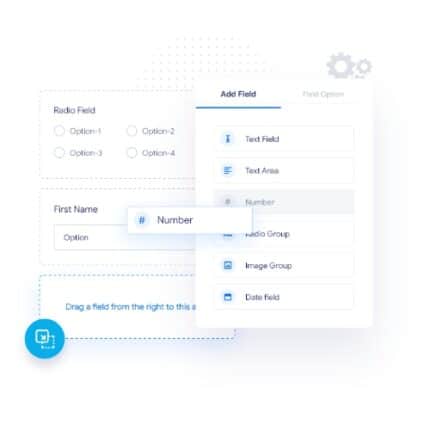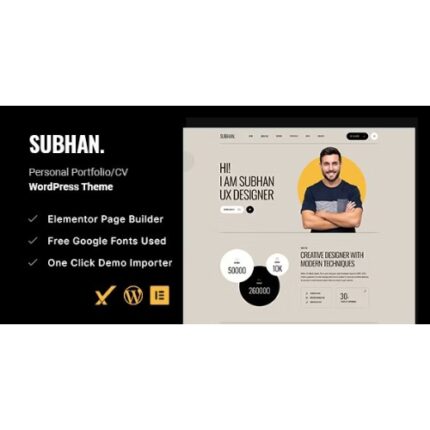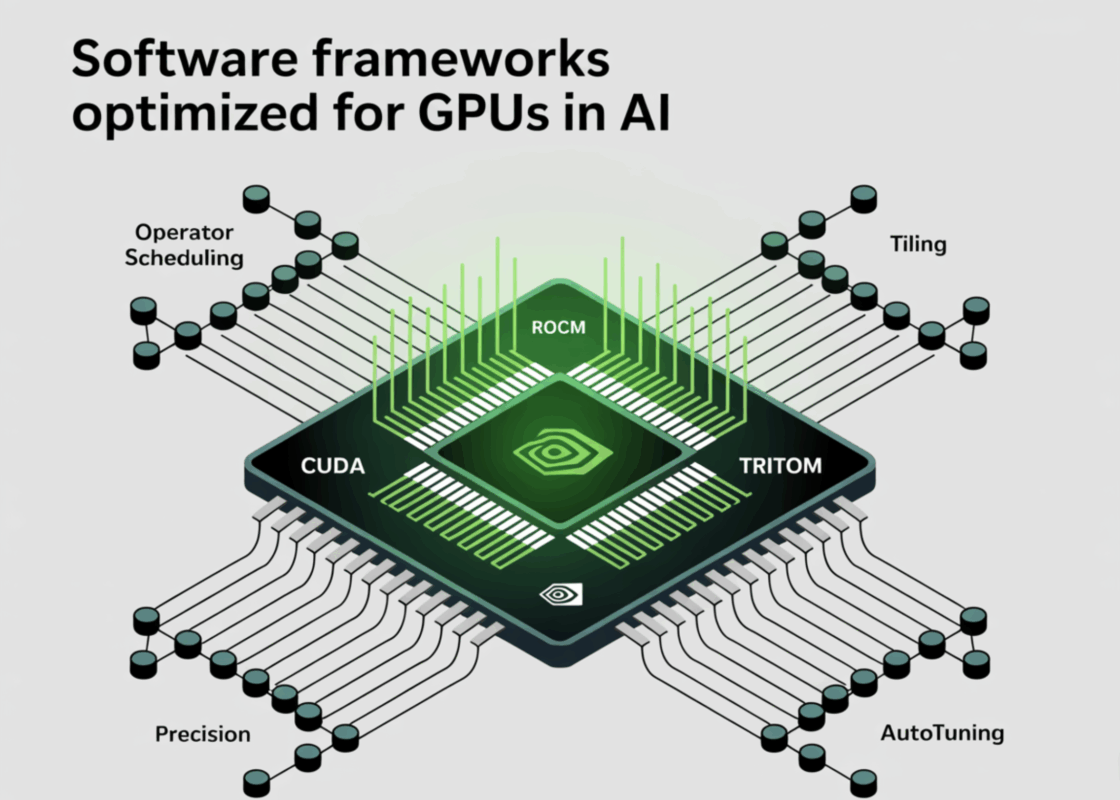Blog
The Transformative Power of AI in WordPress: Shaping the Future of Web Development
The integration of artificial intelligence (AI) with WordPress is no longer a futuristic concept—it’s happening now. As the world’s most popular content management system (CMS), WordPress powers over 40% of websites globally. With AI’s rapid evolution, this dynamic duo is redefining how websites are built, managed, and optimized. From automating tedious tasks to delivering hyper-personalized user experiences, AI is ushering in a new era for WordPress. Let’s explore how these advancements are reshaping the platform and what this means for developers, businesses, and content creators.
1. Automating Workflows for Enhanced Efficiency
One of AI’s most immediate impacts on WordPress is its ability to automate repetitive tasks, freeing creators to focus on strategy and creativity.
Streamlining Content Management
AI-powered tools now handle routine activities like plugin updates, database optimization, and spam filtering. For instance, smart algorithms can automatically categorize blog posts, tag images, and optimize metadata for SEO. Plugins like Akismet already use machine learning to combat spam, but newer tools take this further by predicting server load issues or resolving broken links without manual intervention.
Intelligent Content Generation
AI writing assistants are revolutionizing content creation for WordPress users. Tools like ChatGPT and Jasper integrate seamlessly with the platform, helping users draft blog posts, generate meta descriptions, or repurpose existing content. These systems analyze user input, tone, and SEO requirements to produce high-quality drafts that humans can refine—reducing research and drafting time by up to 70%.
2. Personalizing User Experiences at Scale
Modern visitors expect websites to adapt to their preferences instantly. AI makes this possible through real-time data analysis and predictive modeling.
Dynamic Content Delivery
WordPress sites can now display tailored content based on a visitor’s location, browsing history, or device. An eCommerce site might showcase winter apparel to users in colder regions, while a news platform prioritizes tech stories for readers who frequently click on AI-related articles. Plugins like WordLift use natural language processing (NLP) to auto-tag content and build internal links, enhancing both SEO and user navigation.
AI-Driven Recommendations
Machine learning algorithms excel at identifying patterns. By analyzing user behavior—time spent on pages, click-through rates, and past purchases—AI can recommend related products, articles, or services. This not only boosts engagement but also increases average order values for online stores.
3. Revolutionizing Design and Development
AI is democratizing web design by simplifying complex processes and offering data-driven insights.
Automated Layout Optimization
Tools like Adobe Sensei and AI-powered page builders use generative design principles to create visually appealing layouts. Users input their content, and the AI suggests color schemes, font pairings, and responsive designs that align with brand guidelines. This reduces dependency on professional designers for basic sites.
Code Optimization and Debugging
Advanced AI models can now review WordPress codebases, identify inefficiencies, and even suggest fixes. Plugins like WPCode streamline snippet management by detecting conflicts between plugins or outdated PHP code, ensuring smoother site performance.
4. Proactive Security and Maintenance
AI’s predictive capabilities are transforming WordPress security from reactive to proactive.
Real-Time Threat Detection
Traditional security plugins rely on known threat databases, but AI systems like Sucuri or Wordfence use anomaly detection to spot suspicious activity. By analyzing traffic patterns, they can block DDoS attacks, brute-force login attempts, and zero-day exploits before they compromise a site.
Automated Backups and Updates
AI-driven maintenance tools schedule updates during low-traffic periods, test compatibility issues in sandbox environments, and roll back changes if errors occur. They also predict storage needs, automatically archiving outdated content while ensuring critical data remains accessible.
5. Navigating Ethical Considerations
While AI offers immense potential, its integration with WordPress raises important questions.
Data Privacy and Transparency
AI systems require data to function, but collecting user information must comply with regulations like GDPR. Developers must ensure transparency about how data is used—especially when implementing personalized experiences or chatbots.
Preserving Human Creativity
Over-reliance on AI-generated content risks homogenizing digital spaces. Striking a balance between automation and human input keeps websites unique and authentic. Editors should refine AI drafts to inject brand voice, while designers must oversee AI-generated layouts to maintain creativity.
6. The Future of AI in WordPress: Trends to Watch
The AI-WordPress synergy is still in its infancy. Emerging trends hint at even more transformative possibilities.
Voice Search Optimization
As voice-assisted devices proliferate, AI will play a pivotal role in optimizing WordPress sites for voice search. Expect plugins that focus on conversational keywords and schema markup tailored for Alexa or Google Assistant queries.
Predictive Analytics for Content Strategy
Future tools might analyze market trends, social sentiment, and competitor data to recommend blog topics or product launches. Imagine an AI dashboard advising a travel blogger to write about “sustainable tourism” before peak booking season based on rising search volumes.
AI-Powered Virtual Assistants
Advanced chatbots could handle complex customer service tasks directly within WordPress, from processing returns to booking appointments—all while learning from each interaction to improve responses.
Embracing the AI-Driven WordPress Landscape
The fusion of AI and WordPress is creating smarter, faster, and more intuitive websites. While challenges like ethical data use and creative integrity remain, the benefits—enhanced efficiency, personalized experiences, and robust security—are undeniable. Developers and businesses that adopt these tools early will gain a competitive edge, delivering superior value to their audiences.
As AI continues to evolve, one thing is clear: WordPress is no longer just a tool for building websites. It’s becoming an intelligent partner that evolves with your needs, anticipates challenges, and unlocks unprecedented opportunities in the digital world. The future of web development is here, and it’s powered by artificial intelligence.
Elementor Pro
In stock
PixelYourSite Pro
In stock
Rank Math Pro
In stock
Related posts
Ai 🤖 boom #sad #stockma#promts #oldies #gpt3 #wordpress #plugins #development
Software Frameworks Optimized for GPUs in AI: CUDA, ROCm, Triton, TensorRT—Compiler Paths and Performance Implications
WordPress Tutorial for Beginners 2025 | WordPress Full Course In Hindi
STOP Wasting Money On AI Coding Tools Like Lovable.dev
30-Minute Exercise Suppresses Breast Cancer Growth by 30%, Study Shows
WordPress Setup to Automate Your WordPress Blog with N8N & AI
Top 10 Applications of Artificial Intelligence for Enterprises in 2025
The Rise of Semantic Entity Resolution
WordPress Ecommerce Website Tutorial in Tamil | Free Theme and Plugins | #wordpress #tamilecommerce
Criando Micro-SaaS no WordPress com Claude.ai | Introdução
Top Uses and Benefits of AI in Healthcare Industry
Best WordPress Theme for Digital Marketing Agency | 3x ज्यादा Clients आने लगे!
Products
-
 Rayzi : Live streaming, PK Battel, Multi Live, Voice Chat Room, Beauty Filter with Admin Panel
Rayzi : Live streaming, PK Battel, Multi Live, Voice Chat Room, Beauty Filter with Admin Panel
$98.40Original price was: $98.40.$34.44Current price is: $34.44.In stock
-
 Team Showcase – WordPress Plugin
Team Showcase – WordPress Plugin
$53.71Original price was: $53.71.$4.02Current price is: $4.02.In stock
-
 ChatBot for WooCommerce – Retargeting, Exit Intent, Abandoned Cart, Facebook Live Chat – WoowBot
ChatBot for WooCommerce – Retargeting, Exit Intent, Abandoned Cart, Facebook Live Chat – WoowBot
$53.71Original price was: $53.71.$4.02Current price is: $4.02.In stock
-
 FOX – Currency Switcher Professional for WooCommerce
FOX – Currency Switcher Professional for WooCommerce
$41.00Original price was: $41.00.$4.02Current price is: $4.02.In stock
-
 WooCommerce Attach Me!
WooCommerce Attach Me!
$41.00Original price was: $41.00.$4.02Current price is: $4.02.In stock
-
 Magic Post Thumbnail Pro
Magic Post Thumbnail Pro
$53.71Original price was: $53.71.$3.69Current price is: $3.69.In stock
-
 Bus Ticket Booking with Seat Reservation PRO
Bus Ticket Booking with Seat Reservation PRO
$53.71Original price was: $53.71.$4.02Current price is: $4.02.In stock
-
 GiveWP + Addons
GiveWP + Addons
$53.71Original price was: $53.71.$3.85Current price is: $3.85.In stock
-
 ACF Views Pro
ACF Views Pro
$62.73Original price was: $62.73.$3.94Current price is: $3.94.In stock
-
 Kadence Theme Pro
Kadence Theme Pro
$53.71Original price was: $53.71.$3.69Current price is: $3.69.In stock
-
 LoginPress Pro
LoginPress Pro
$53.71Original price was: $53.71.$4.02Current price is: $4.02.In stock
-
 Checkout Field Editor and Manager for WooCommerce Pro
Checkout Field Editor and Manager for WooCommerce Pro
$53.71Original price was: $53.71.$3.94Current price is: $3.94.In stock
-
 Social Auto Poster
Social Auto Poster
$53.71Original price was: $53.71.$3.94Current price is: $3.94.In stock
-
 Vitepos Pro
Vitepos Pro
$53.71Original price was: $53.71.$12.30Current price is: $12.30.In stock
-
 Digits : WordPress Mobile Number Signup and Login
Digits : WordPress Mobile Number Signup and Login
$53.71Original price was: $53.71.$3.94Current price is: $3.94.In stock
-
 BookingPress Pro – Appointment Booking plugin
BookingPress Pro – Appointment Booking plugin
$53.71Original price was: $53.71.$3.94Current price is: $3.94.In stock
-
 Polylang Pro
Polylang Pro
$53.71Original price was: $53.71.$3.94Current price is: $3.94.In stock
-
 All-in-One WP Migration Unlimited Extension
All-in-One WP Migration Unlimited Extension
$53.71Original price was: $53.71.$3.94Current price is: $3.94.In stock
-
 Slider Revolution Responsive WordPress Plugin
Slider Revolution Responsive WordPress Plugin
$53.71Original price was: $53.71.$4.51Current price is: $4.51.In stock
-
 Advanced Custom Fields (ACF) Pro
Advanced Custom Fields (ACF) Pro
$53.71Original price was: $53.71.$3.94Current price is: $3.94.In stock
-
 Gillion | Multi-Concept Blog/Magazine & Shop WordPress AMP Theme
Rated 4.60 out of 5
Gillion | Multi-Concept Blog/Magazine & Shop WordPress AMP Theme
Rated 4.60 out of 5$53.71Original price was: $53.71.$5.00Current price is: $5.00.In stock
-
 Eidmart | Digital Marketplace WordPress Theme
Rated 4.70 out of 5
Eidmart | Digital Marketplace WordPress Theme
Rated 4.70 out of 5$53.71Original price was: $53.71.$5.00Current price is: $5.00.In stock
-
 Phox - Hosting WordPress & WHMCS Theme
Rated 4.89 out of 5
Phox - Hosting WordPress & WHMCS Theme
Rated 4.89 out of 5$53.71Original price was: $53.71.$5.17Current price is: $5.17.In stock
-
 Cuinare - Multivendor Restaurant WordPress Theme
Rated 4.14 out of 5
Cuinare - Multivendor Restaurant WordPress Theme
Rated 4.14 out of 5$53.71Original price was: $53.71.$5.17Current price is: $5.17.In stock
-
 Eikra - Education WordPress Theme
Rated 4.60 out of 5
Eikra - Education WordPress Theme
Rated 4.60 out of 5$62.73Original price was: $62.73.$5.08Current price is: $5.08.In stock
-
 Tripgo - Tour Booking WordPress Theme
Rated 5.00 out of 5
Tripgo - Tour Booking WordPress Theme
Rated 5.00 out of 5$53.71Original price was: $53.71.$4.76Current price is: $4.76.In stock
-
 Subhan - Personal Portfolio/CV WordPress Theme
Rated 4.89 out of 5
Subhan - Personal Portfolio/CV WordPress Theme
Rated 4.89 out of 5$53.71Original price was: $53.71.$4.76Current price is: $4.76.In stock
-
 Bloxic - Furniture Store WooCommerce Theme
Rated 4.83 out of 5
Bloxic - Furniture Store WooCommerce Theme
Rated 4.83 out of 5$53.71Original price was: $53.71.$4.76Current price is: $4.76.In stock
-
 Travel Tour - Travel Booking WordPress
Rated 4.50 out of 5
Travel Tour - Travel Booking WordPress
Rated 4.50 out of 5$53.71Original price was: $53.71.$4.51Current price is: $4.51.In stock
-
 Eduma – Education WordPress Theme
Rated 4.33 out of 5
Eduma – Education WordPress Theme
Rated 4.33 out of 5$53.71Original price was: $53.71.$4.51Current price is: $4.51.In stock


















